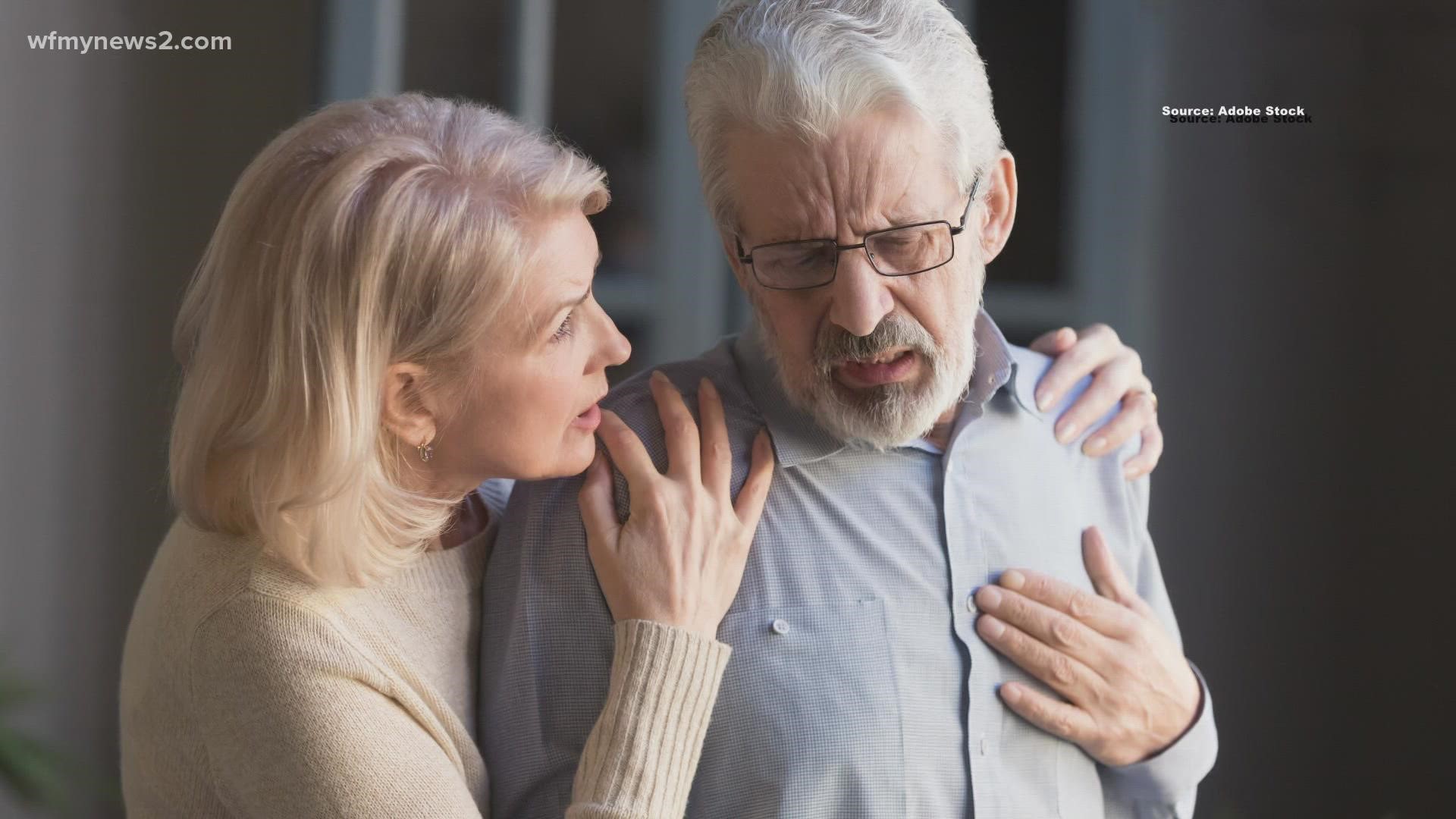WINSTON-SALEM, N.C. — During Heart Health Month, it's important to learn how to take care of your heart and prevent heart disease. Plus, you want to factor in COVID-19 and the effects the virus can have on the heart.
"Despite improvements in evaluating and treating cardiovascular disease, it still remains the number one killer. Not only in the United States, but now actually across the globe," Dr. Michael Shapiro said.
Dr. Shapiro is the Director of the Center for Prevention of Cardiovascular Disease at Atrium Health Wake Forest Baptist.
He said half of the people who have heart attacks have no symptoms beforehand. That's why he said it's so important to have check-ups with your doctor.
The following risk factors need to be routinely evaluated:
- cholesterol
- blood pressure
- diabetes
- obesity
- smoking
- poor diet
- sedentary lifestyle
"Most people are going to develop some kind of cardiovascular disease. It's something we all need to be thinking about in terms of how to prevent it," Dr. Shapiro said.
Heart health has become even more important when it comes to COVID-19.
Dr. Shapiro said there's been an 16% increase in incidents of myocarditis among people infected with COVID-19. Myocarditis is the inflammation of the heart muscle and can lead to heart failure.
Dr. Shapiro also mentioned that those with pre-existing heart conditions are more susceptible to complications from coronavirus.
Early studies indicated that COVID-19 could leave scars on the heart, but Dr. Shapiro said those studies have come under scrutiny because there is still a lot unclear about this.
"There is a lot of investigation going on in this and of course there is a lot of concern and of course the best advice is to get vaccinated and try not to get infected in the first place," Dr. Shapiro said.
If you are experiencing chest pain, feeling like your heart is racing, you're easily fatigued or easily out of breath, you'll want to contact your doctor.

